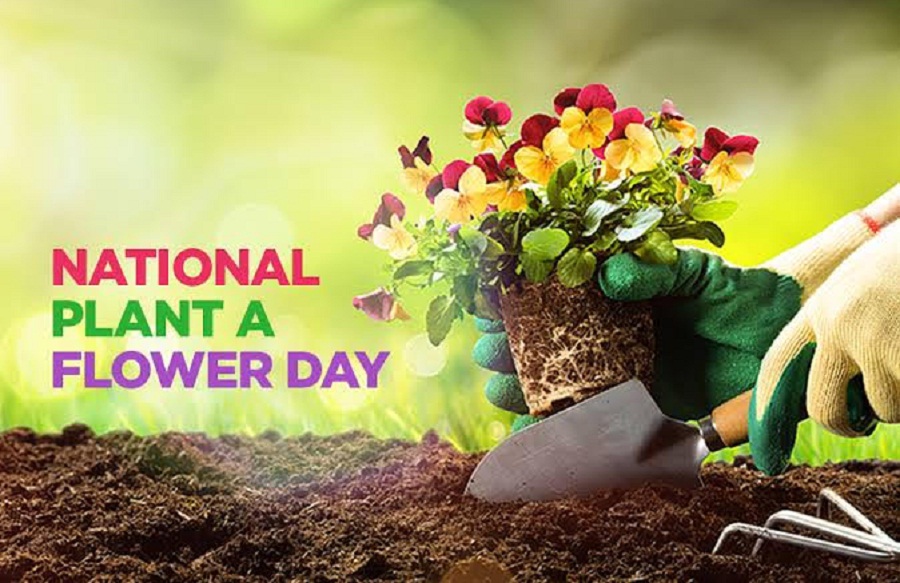
Published :
Updated :

Every year on March 12th, a vibrant tradition takes root around the globe: National Plant a Flower Day. National Plant a Flower Day is more than an annual tradition; it's a movement toward a greener, more connected world.
We cultivate hope for tomorrow—proving that even the most minor acts of care can create a garden of possibilities.
This occasion inspires individuals, communities, and organisations to dig into the soil and sow the seeds of beauty, sustainability, and togetherness.
But how do different regions and cultures embrace this day dedicated to flowers? And how does the world celebrate National Plant a Flower Day, and what is the significance that comes with it?
Why this day?
The origins of National Plant a Flower Day may be modest, but its significance grows stronger each year. It reminds us of the power of nature and the essential role flowers play in our ecosystems. From pollination to mental well-being, these colourful blooms are more than mere decorations. They symbolise hope, renewal, and the promise of a brighter tomorrow.
Celebrations across the globe: The United States
In the U.S., National Plant a Flower Day often sees communities coming together to plant flowers in parks, schoolyards, and urban gardens. Local gardening clubs and environmental organisations organise workshops to teach participants how to select and care for flowers that thrive in their region. Social media campaigns encourage people to share photos of their newly planted blooms, spreading the joy far and wide.
Japan: A cultural connection to blooms
Although Japan is globally renowned for its cherry blossom festivals, National Plant a Flower Day dovetails beautifully with the country's deep appreciation for flowers.

Hanami or cherry blossom in japan
Japanese gardeners begin planting early spring flowers like pansies and primroses in March. They are aligned with their cultural philosophy of "hanami" (flower viewing), celebrating the fleeting beauty of nature.
Netherlands: Honoring the flower capital
The Dutch take their National Plant a Flower Day to heart.
Amsterdam and Lisse hold special events for their residents to plant tulips, daffodils, and crocuses.
Dutch florists and nurseries also host sales and exhibitions to observe the day for flower enthusiasts.
India: Festivities rooted in spirituality
Flowers hold spiritual significance and are often used in religious rituals and festivals in India.
Schools and community groups organise events to plant marigolds, hibiscus, and jasmine—flowers frequently associated with offerings and celebrations. The day serves to educate and inspire younger generations about the ecological importance of biodiversity.
South Africa: A call for conservation
Where unique flora like proteas and ericas thrive, National Plant a Flower Day becomes an opportunity to highlight the conservation efforts in South Africa.
Many environmental groups organise tree-planting activities that include flowering plants as well. These initiatives aim to restore ecosystems to raise awareness of the region's rich but threatened biodiversity.
Why planting flowers matters
Planting a flower might seem small, but its impact can be profound. Flowers contribute to pollinator health, reduce carbon footprints, and add colour to our surroundings, lifting our spirits. On a larger scale, collective efforts on National Plant a Flower Day foster community bonds and remind us of our responsibility to protect the planet.
How can we celebrate this day in Bangladesh, where most people are indifferent towards plantations?
Whether we're an experienced gardener or a complete novice, there are countless ways to join the celebration of living in this country if we just want to. Planting Native Flowers is an option. We must choose flowers native to our region to support local pollinators and ecosystems. Environmentalists and social workers can host a Planting Party: Invite friends and family to plant flowers in the garden or a nearby public space. People can also participate by donating to Environmental Causes and supporting organisations that promote urban greenery and reforestation. We can also Share our planting journey on media to inspire others to participate and to make the world a little brighter, one flower at a time.
tazri2019@gmail.com


 For all latest news, follow The Financial Express Google News channel.
For all latest news, follow The Financial Express Google News channel.